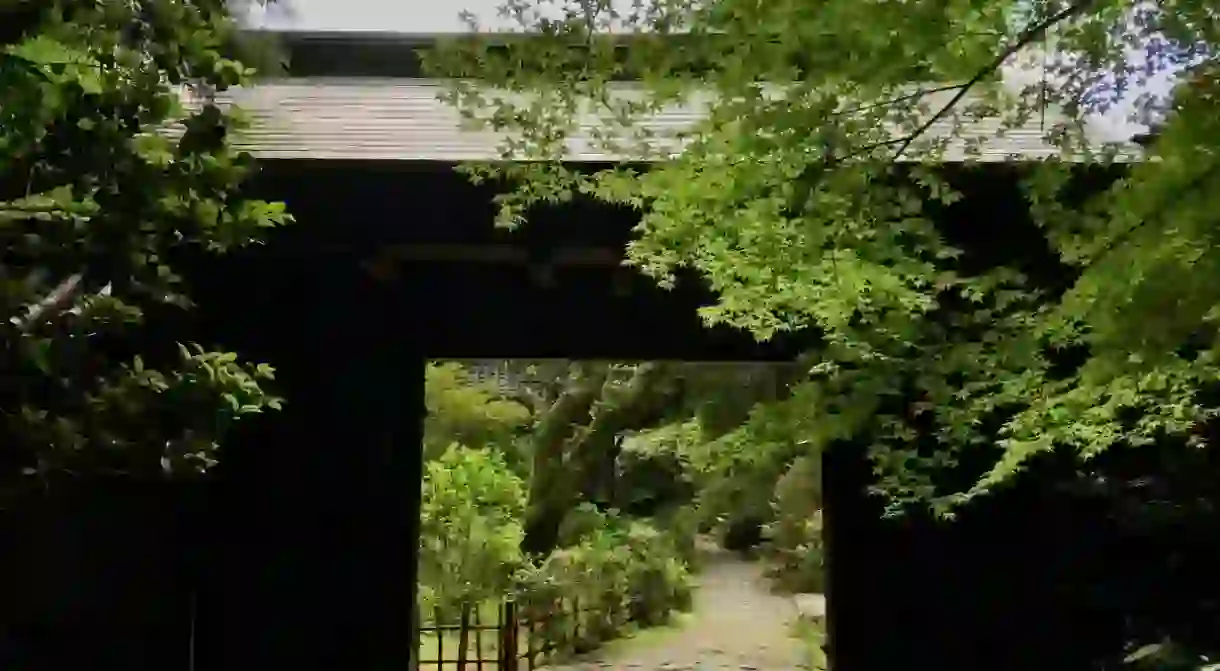Incredible Day Hikes Near Osaka

One of the best things about Japan is the incredible convenience of the public transit combined with the varying landscapes that make up this gorgeous country. Visitors and residents alike take advantage of this and regularly escape their urban lives with hikes in one of the forests, mountains, or valleys that surround most Japanese cities. Here are a few hikes that are all less than two hours from downtown Osaka and can be done in a day.
Minoo Park
This is urban Osaka’s most accessible and least strenuous hike. The city of Minoo is renowned for its breathtaking fall leaves and award-winning craft beer, both of which hikers can enjoy in Minoo Quasi-National Park. Along the way, see friendly monkeys, breathtaking shrines, and Minoo Waterfall, which is the park’s main attraction. The trek follows a paved path and should take about 45 minutes each way. The trailhead is just outside of Minoo Station, which is a 30-minute ride from Umeda Station on the Hankyu Line.

Mount Ikoma
Located between Osaka and Nara, Mt. Ikoma is a sacred spot with panoramic views of both cities. Long worshiped and revered, the mountain is home to many forest shrines and temples, which are found along the Zushidani hiking path (辻子谷ハイキングコース). At the top, hikers will also find a wonderful children’s amusement park. The hike includes a number of steep inclines and takes about four to five hours to complete, though taking the cute cable car can shorten your journey down from the theme park. Start the hike at Shin-Ishikiri Station, and then head toward the shrine of the same name to find the trail, which starts on a road famous for fortune telling.

Mount Rokko
Mt. Rokko is an exciting destination near Kobe that features more than just nature, as the summit was designed as an attraction on its own. Start at Hankyu Ashiyagawa Station for a challenging—but feasible—day hike that starts off pretty rough but then levels out for the remainder of the trek. It should take about four or five hours to get to the top, where hikers can take in the 360-degree views of Kobe and Osaka, have fun at the petting zoo, enjoy the botanical garden, and more. From there, hikers have a few options—take a cable car down the mountain, continue the hike to Mt. Maya or Takurazuka, or take the highly recommended walk to Arima Onsen, which is among the best hot springs towns in the country.

Mount Daimonji
Daimonji is one of Kyoto’s most historic and imposing mountains, and it’s also the site of one of the city’s greatest festivals. The hike up Daimonji can be approached two ways—start at Ginkakuji, the Silver Temple, and hike to the summit and back (about two hours), or start on the other side of the mountain at Yamashina Station, and descend down to Ginkakuji (three hours). Either approach includes a beautiful natural backdrop featuring pines and streams, a breathtaking view of Kyoto, a visit to the site of the fires that light up the mountain during the Daimonji Festival, and the chance to stroll through Ginkakuji and down the Philosopher’s Path when finished.

Kurama to Kibune
These two towns are nestled in a rural area of Kyoto and are connected by a lovely and easy hiking path. Start in Kurama and hike through shrines and temples, past picturesque waterfalls and towering trees before arriving at Kibune, a quaint town filled with Japanese style inns and restaurants. During the summer months, restaurant patios are suspended over the town’s river, so you can cool down while enjoying refreshing Kyoto cuisine. Kurama Station is about an hour and a half from Yodoyabashi Station on the Keihan Line.














